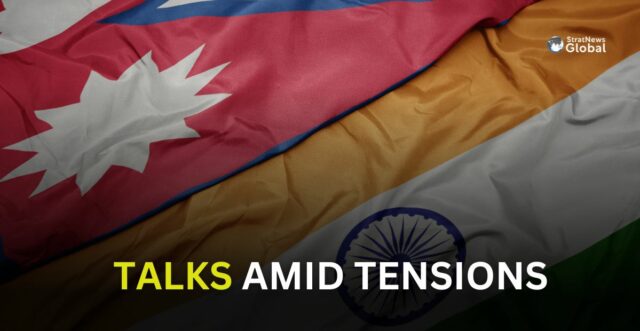In less than a month from now, Prime Minister Modi will host his Nepali counterpart K P Sharma Oli, in the monastic town of Bodhgaya, Bihar. For Oli, it ends an obvious embarrassment, of not meriting an official invitation to visit India 13 months into his fourth term.
But the tone in sections of the Nepali media is negative, questioning the rationale for the visit when India has shown no inclination to address the “territorial dispute” over Kalapani, Lympiadhura and Lipulekh.
Last week there was an exchange on the issue between the two foreign ministries, with India dismissing Nepal’s objections to border trade being resumed with China through Lipulekh. External Affairs Ministry spokesman Randhir Jaiswal said:
“Our position remains that such claims are neither justified nor based on historical facts and evidence. Any unilateral artificial enlargement of territorial claims is untenable.”
Nepal’s Online Khabar quoted Indra Adhikari, a commentator on security issues as saying that “This is not the time to travel merely for formalities. Such visits usually cover issues where both countries have reached agreement. That requires long preparation. In times of disputes and without a special agenda, it’s better not to go just for protocol.”
But India’s former ambassador to Nepal Ranjit Rae, has a different perspective on that. He told StratNewsGlobal that “There’s a very close relationship between India and Nepal and India looms quite large in the Nepali consciousness. And India becomes a factor in their domestic politics.”
The point is to ensure the political discord does not spill over and affect the economic cooperation that has been steadily expanding into areas like hydropower.
“Nepal has started exporting a fair amount of electricity to India and that’s a good development,” Ambassador Rae said, “People always said that India is not giving Nepal a good deal. Hopefully these issues will not be as salient as they used to be.”
Nepal is also exporting power to Bangladesh via India, which brings much needed revenues into Nepal government coffers.
The big ticket would be resolution of disagreements over the Pancheswar multipurpose power project. When completed it would generate over 6000 MW of power to be shared equally between India and Nepal.
But it has stalled reportedly over the height of the proposed dam on the Mahakali river, area of submergence and the benefits of irrigation that should accrue to both sides. For the record, the word from Kathmandu and Delhi is they are serious about it. Hopefully, by the time Modi and Oli meet, the issue would no longer be hanging fire.





